Table of Contents
Introduction
Cara is a Nurse Practitioner with a speciality area of practice in Sexual & Reproductive Health. Originally from Adelaide, SA, Cara has worked rural/remote in NSW & WA as well as in the cities of Adelaide & Perth. Cara has worked mainly in the community, including working with people living with HIV, men who have sex with men, Indigenous people, sex workers, CALD communities, young people & people who identify as either LGBTIQA+.
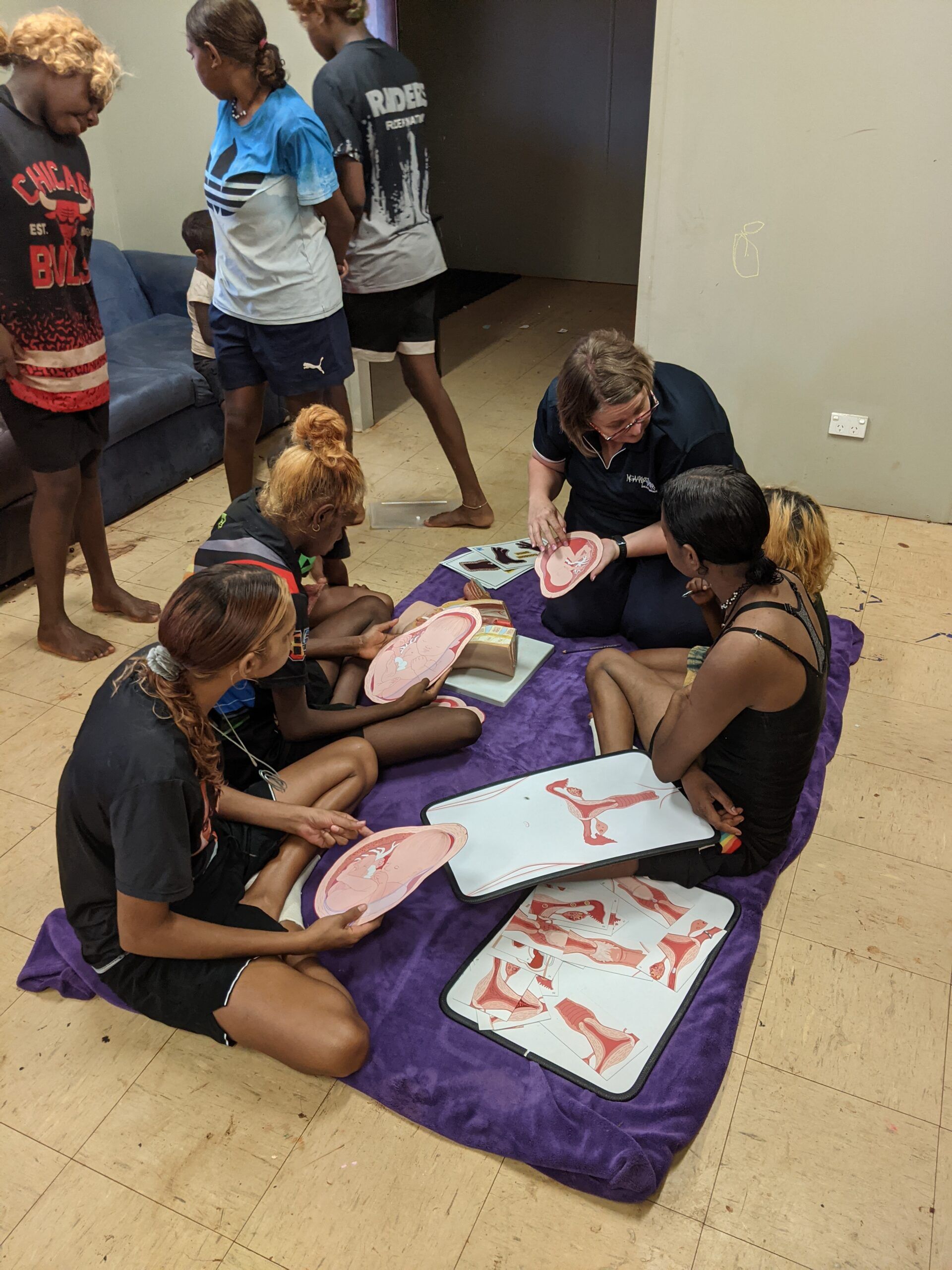
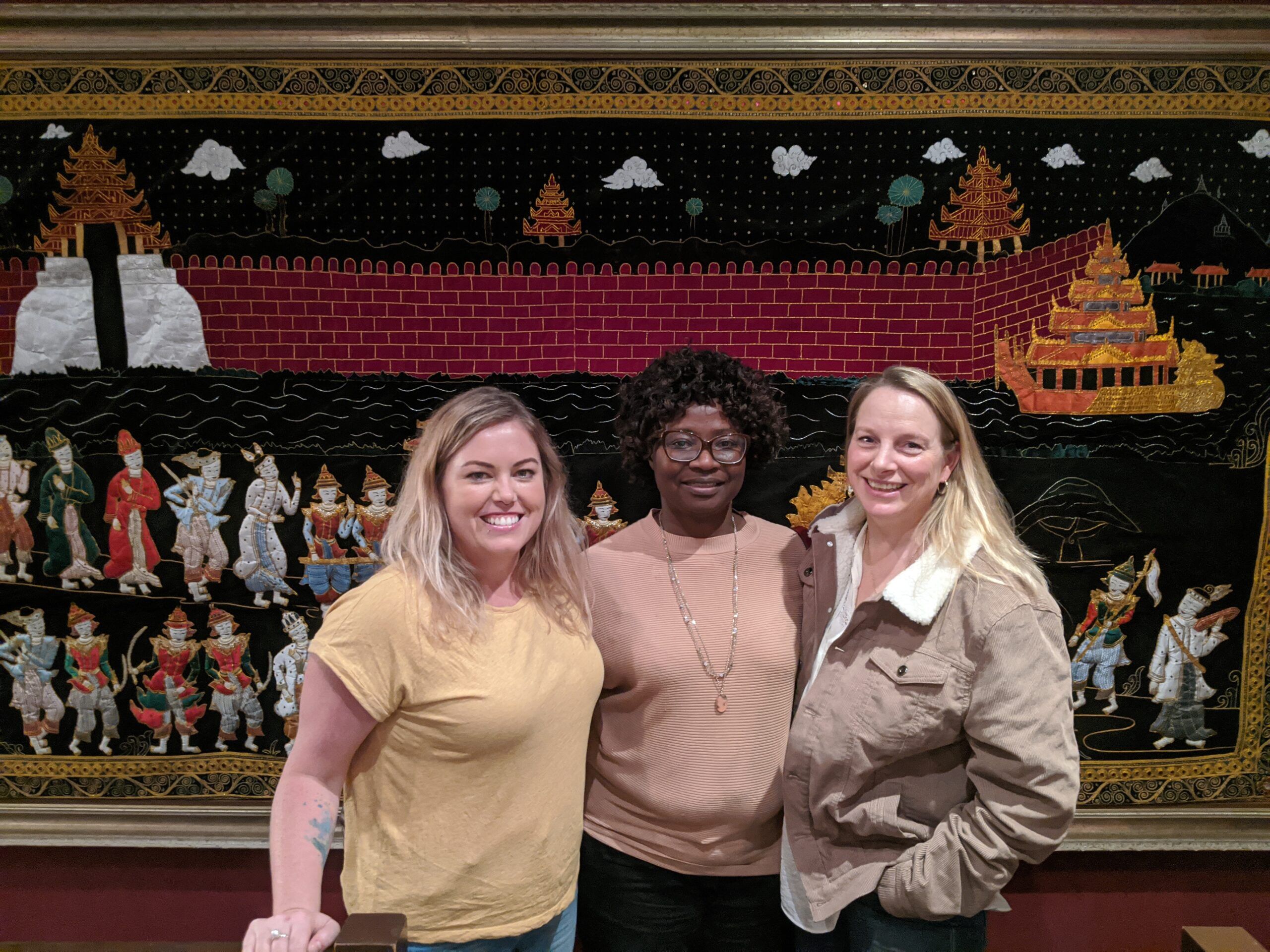
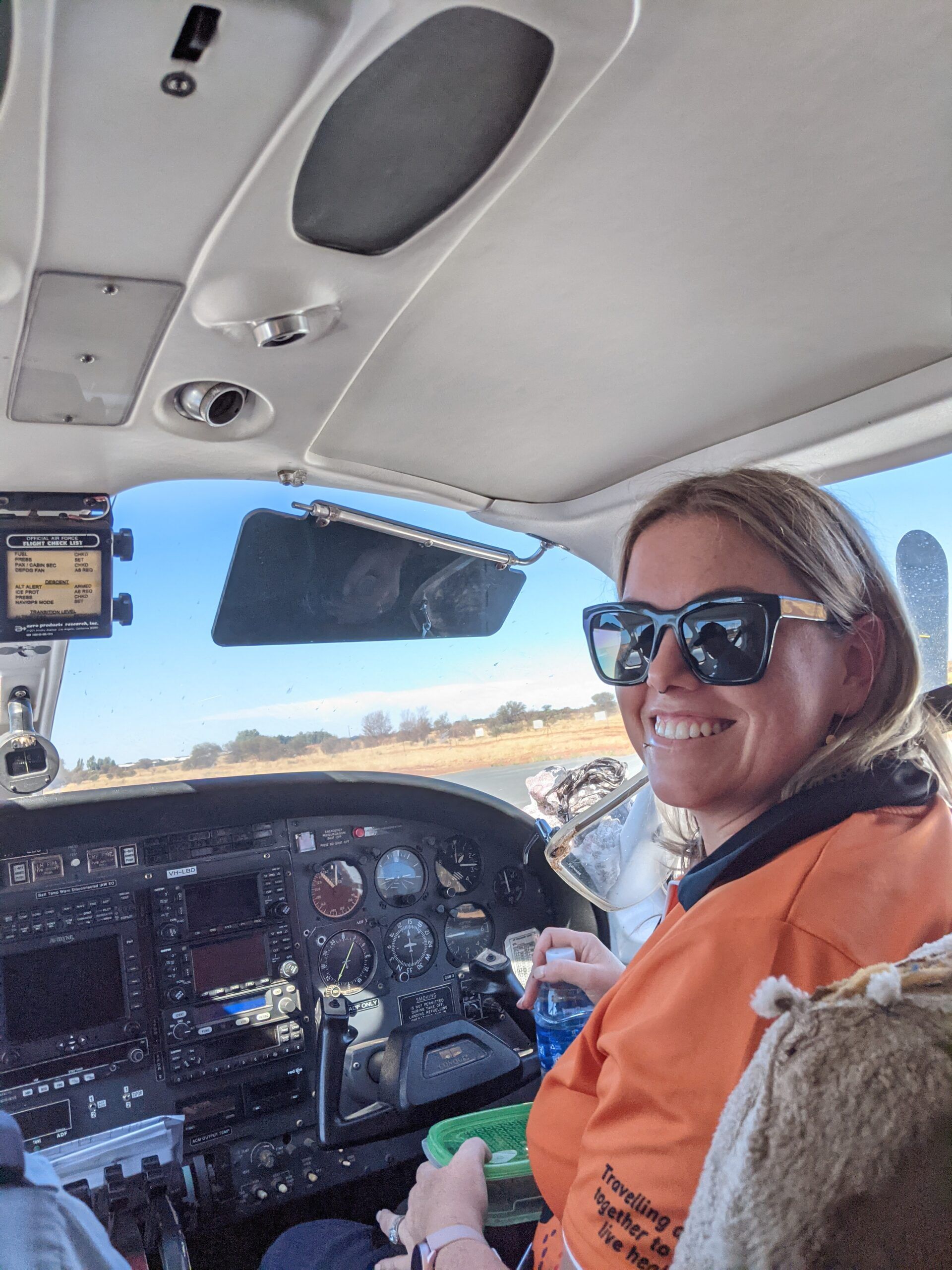
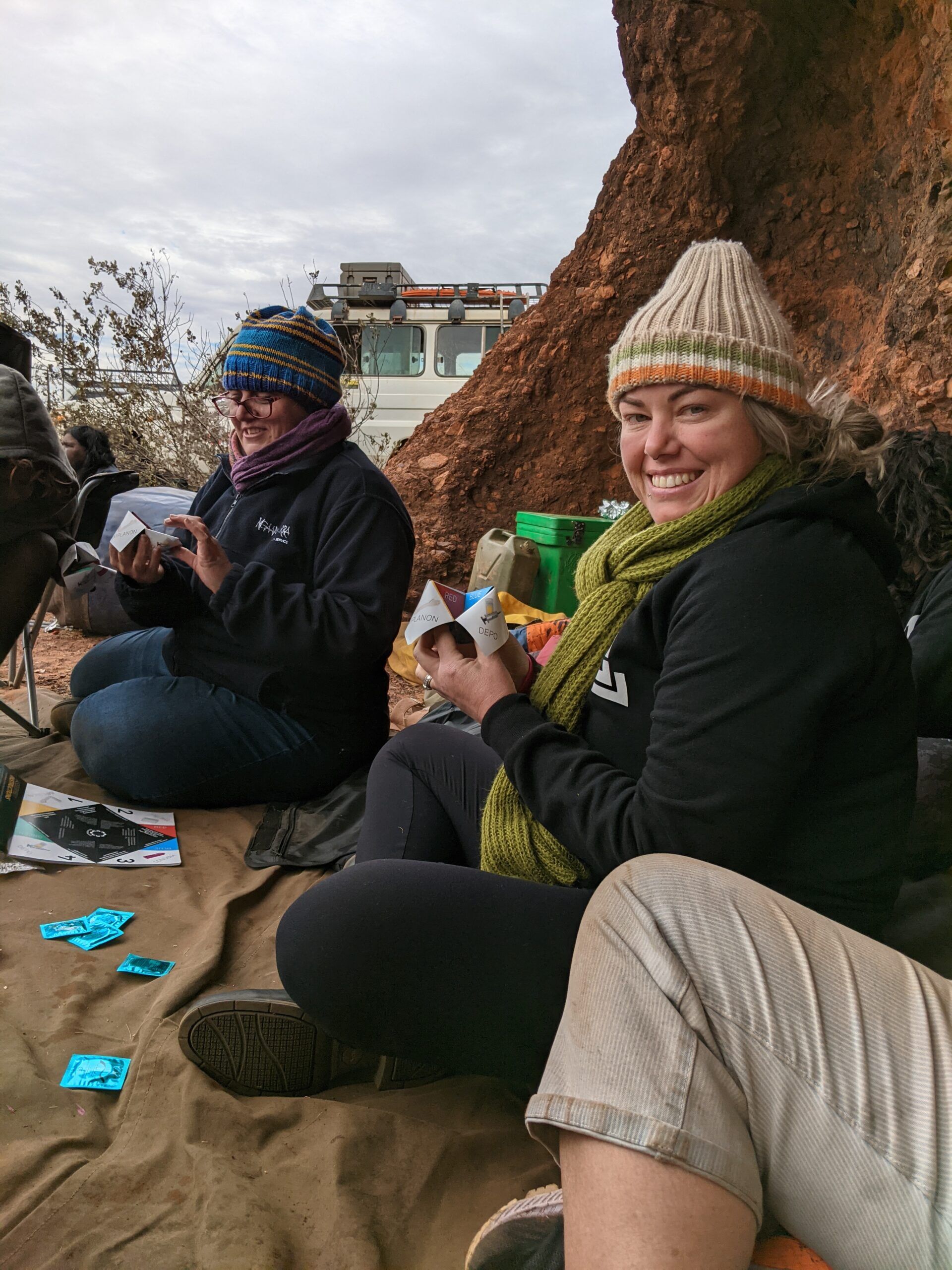
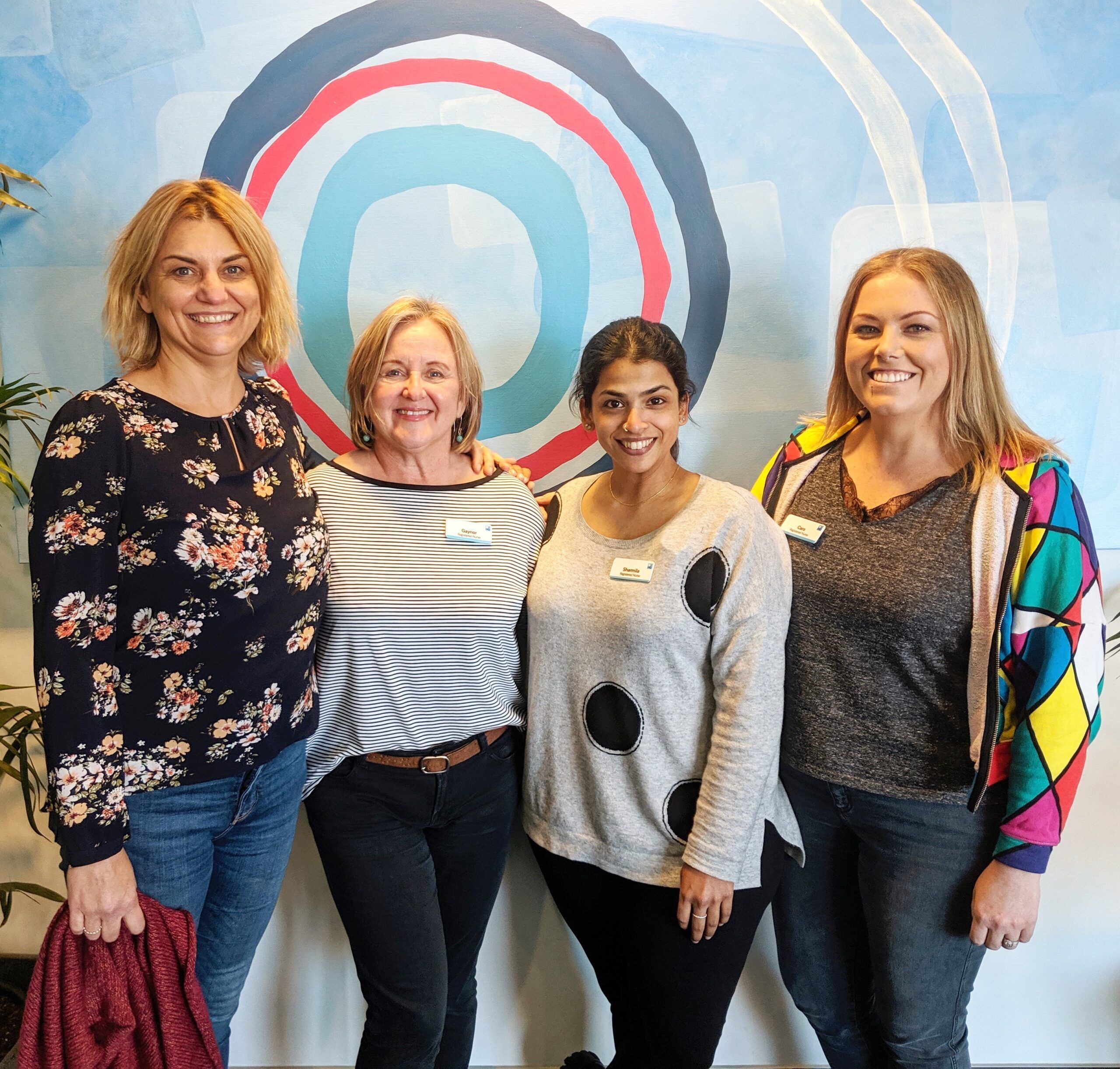
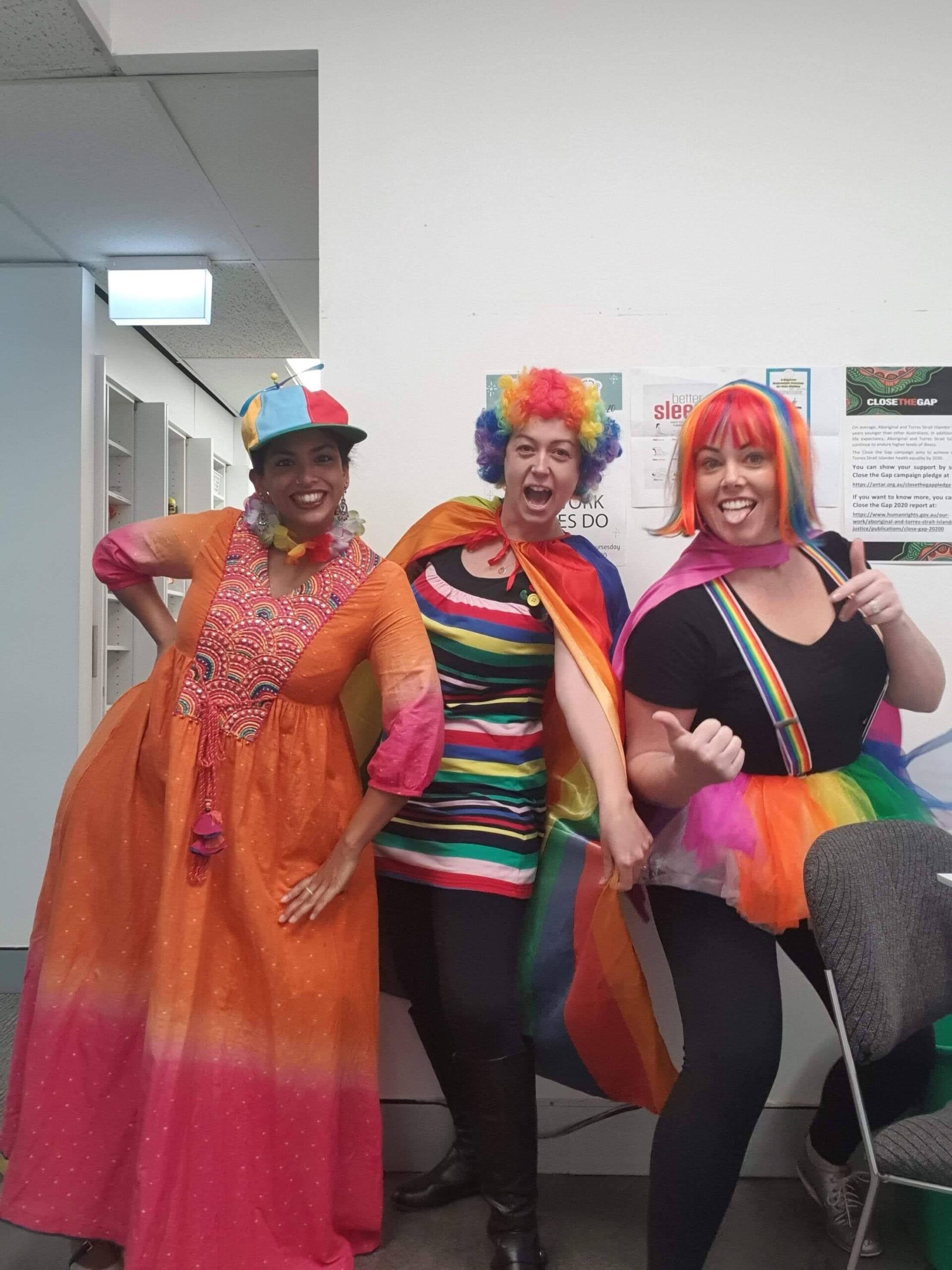
What is a sexual & reproductive health nurse?
For me, S&RH nursing is broad and includes working with people from puberty through to older age. In the earlier age group, it can be more basic work such as talking about our bodies, what our reproductive systems are and what changes are happening so that young people understand this process.
It can also incorporate discussing private areas of our bodies and sexual safety so that young people have the knowledge and ability to talk to someone they trust if they feel unsafe. So, this aspect of S&RH nursing isn’t about sex, but it is about setting up good foundations for young people so that when and if they choose to have sex they feel empowered and in control of what choices they make.
Most of my work is usually working one on one with clients who are or have had sex and they are seeing me for certain aspects relating to this. It might be to do with:
- Contraception;
- testing for sexually transmitted infections (STIs);
- treatment for STIs;
- cervical screening;
- genital examination to diagnose a problem or to reassure someone that their anatomy is normal
- listening to someone who shares an experience of sexual abuse or assault;
- general counselling about relationships and wellbeing (including intimate partner violence, family & domestic violence; sexual problems within relationships, etc)
- prescribing PrEP (pre-exposure prophylaxis to prevent HIV)
- referring clients to specialists or alternative services for follow up
- period problems (eg. Painful periods, absent periods, irregular periods)
- genital problems (such as abnormal genital discharge, itch, lumps/bumps)
- immunisation (Hep A, Hep B, HPV, Monkeypox)
- advice/education
- pregnancy testing
- pregnancy planning or early antenatal care and referral
- unplanned pregnancy information and pregnancy choices (including medical and surgical termination) – I’ve worked within the abortion care space in the past but currently would see people and do initial diagnostic testing and refer on
- recommend or dispense emergency contraceptive pill (ECP)
- drug use including drugs having a negative impact on sex as well as injecting drug use and how to inject safely
- menopause management (hormonal changes experienced by women when transitioning to having no periods in their 40’s-50’s)
- sexual dysfunction and referral (painful sex, erectile dysfunction, premature ejaculation, etc)
As you can see it can be quite varied and the different workplaces I’ve worked at offer different aspects of sexual health services. I’ve also done a lot of outreach work, which I love as it’s about going out to areas to service people that are often most vulnerable and least likely to access mainstream services. For example, just recently I participated at an outreach clinic at a swingers event where we could engage and offer STI testing to people attending. I’ve worked rural/remote where I’ve done consults in people’s homes, drug and alcohol services, brothels, in the work car, at community events, etc.
My work has included talking to people about contraception and starting/continuing people on hormonal contraception. This includes the combined hormonal contraceptive pill, progestogen-only pill, administered Depo injection contraception (administered intramuscularly every 3 months) and insertion and removal of the Implanon contraceptive implant (an implant the size of a matchstick that sits under the skin in the upper arm over the tricep and lasts 3yrs). I’ve just completed theory training to insert intrauterine devices (IUDs) and will undertake my IUD insertion practical training in March 2023.
I will then be deemed competent (hopefully!) to be able to offer IUD insertions to my clients. Before I was an NP, I worked in workplaces that had standing drug orders (agreed organisational orders that permitted nurses to dispense or administer certain medications when all parameters were met to ensure it could be given safely, without a Dr being required/available on site). These systems made access to services easier for clients and also supported the professional development and competence of nurses.
What inspired you to get into this field?
I think what kicked it off was studying Women’s Studies in year 12 at high school. This gave me tremendous insights into gender inequity and to understand that not everyone has privilege. I also remember around this age listening to my mum and aunty talk about experiences they’d had when accessing women’s health services and hearing how disempowered they were in these experiences.
I always knew I wanted to be a nurse and work in this field. I think in general I’ve loved health advocacy and particularly within the sexual health space as there is a lot of shame and stigma that stops conversations being had between health clinicians and clients. Over time I’ve learned that clients want to have these discussions and it’s actually the health staff that struggle the most with their baggage and values/attitudes towards this subject. For example, as an early RN my grandfather had to have his prostate removed due to cancer.
I was teaching him how to strengthen his pelvic floor prior and also talked to him about what was his main questions going into this from what reading materials I provided him. It was his possible loss of erections and urinary incontinence that mattered to him. I went to his specialist appointment and immediately I witnessed my grandfather being in a position where he felt powerless in front of a Dr and he just answered yes/no type words and was vulnerable.
When asked if he was on medication he answered ‘no’ and my aunty stepped in and was like ‘um, yes you are’. I was there to ask about his erections and continence and I can still remember the look the Dr gave me as if to say ‘how dare you care about that when we are trying to get rid of his cancer’.
I’ve always had this ability, to be honest and genuine and have found friends and family members often reach out to me for advice or help to navigate health care systems. This combination of advocacy and an interest in women’s health is what really got me heading down the sexual health pathway.
What keeps you in it?
What keeps me in it? It’s a tremendous privilege to listen to clients who have often never met me before and have them talk about their sexual health history with me. I love that I can be a non-judgemental and caring person that gives them time to tell their story. It’s taken experience over time but I’ve learned that by how I act and talk I can build rapport quickly and often ask quite personal questions succinctly to gain a picture of what is happening so that I can help.
Working within the nursing model of care also I think makes me a real, everyday person that can talk to anyone and everyone. But also has me working in a safe space where I’ll be the first to put my hand up and say “I’m not sure, but let me find out and I’ll get back to you”. That honesty is appreciated by clients too.
I love empowering people with their sexual health lives and giving them the tools to be in control.
What is your approach to nursing different groups?
My general approach to anyone who walks in (no matter which subheading they fall under) is to humanise the experience, normalise the person and just don’t be a dick! And if I am a dick at any point (eg. Use an incorrect term or word) I apologise and move on.
People living with HIV
Within this space, it’s more about understanding where HIV is at in 2022. Most People Living With HIV (PLHIV) are taking medications to suppress the virus. When the virus is suppressed enough it is undetectable. Undetectable = untransmissible. U=U is a phrase common in this space. That means they can’t pass on the virus to someone. That isn’t common knowledge to most people and yet it’s the reality of HIV management today.
A lot of work is about reducing stigma. Also it’s about knowing when their HIV is relevant to the consult you are having with them. Eg. I saw someone recently for immunisation and part of the workup asked if they were on any medication. They mentioned a HIV medication, which I knew was for HIV treatment. All I needed to know was if they had an undetectable viral load, because if they did, I knew (1) that their HIV was being managed and (2) their immune system was fine. End of story. I didn’t need to change lanes and start focusing on their HIV. I did their immunisation and focussed on that.
Men who have sex with men
For me it’s about having the awareness that not all men are heterosexual and that not all men who are having sex with other men identify as ‘gay’. I might be seeing a man who is married with kids but has sex with men outside of this marriage. It’s about asking questions.
I see a lot of MSM who have been having testing with their GP and only ever being offered a urine test for chlamydia and gonorrhoea. Not once have they been asked about who they are having sex with and what type of sex they are having. By asking the questions I can talk about risk reduction as well as offer suitable testing (eg. Rectal and/or throat swabs for chlamydia and gonorrhoea).
It’s also about picking up on a client’s body language. Just recently I saw an older guy and I could tell straight away he was uncomfortable. I mentioned that straight away (he was a new client to the service) and he admitted he didn’t realise he was seeing a woman clinician. There were legitimate reasons that explained him being uncomfortable about this but immediately I responded “you don’t have to see me, I’ve got a male nurse here who can see you instead if you’d prefer”. He did, and we had great health outcomes for him.
Indigenous community
It’s all about context. I’ve worked across 3 different states in Australia including urban, rural and remote areas and every experience is different. It’s about having cultural understanding and reading body language. Talking to people and building rapport is important. Utilising your colleagues and networks to ensure you’re practising safely.
I worked on Ngaanyatjarra Lands and had some tremendous experiences where I provided education to women in ways that suited the women. So having the flexibility to try different ways of working is important. I provided women’s health education on the floor with props to explain myself. And have had older women or support staff translate what I’m saying in their language so that there was a better understanding of what I was talking about.
In a remote clinic with no male clinicians, I managed to provide culturally safe sexual health care to a man. I changed my practice in order to be culturally safe. This client had what potentially sounded like a syphilis chancre (sore) but I respected his wish for me to not examine this when I discussed his options. I wasn’t able to provide a male clinician that day to do this part of the consult and so had to change my ways in order to still provide a culturally safe service that still had excellent clinical outcomes.
Sex workers
Understanding different ways of working in this industry is important (eg. Brothel, independent, street-based). There is also stigma experienced within this community and so empowering and supporting sex workers to work safely is part of this work. In NSW I worked with SWOP (Sex Workers Outreach Project) and built rapport with the manager of a local brothel. This resulted in providing an evening clinic on site so that workers could access confidential STI screening. This also built rapport with workers and our service so that workers felt safe to access our drop-in clinic on a Friday at our service for continued sexual health care.
Culturally & Linguistically Diverse Communities (CALD)
Interpreters and Google Translate can be very helpful. I’ve used face-to-face and phone interpreters with great success. Sometimes people’s conversational English is good, but it might be the occasional medical term that isn’t known. That’s where I find Google Translate can be helpful if it’s just occasional.
Otherwise, a longer appointment with a phone/face-to-face interpreter provides a much better understanding. Otherwise, just having awareness of cultural differences can be helpful as there might be sexual practices a client is doing that wouldn’t be supported by their community. This can impact on safety and risk-taking as well as negatively impact on their mental health.
Young people & people who identify as either LGBTIQA+.
Giving them a voice and allowing them to have some decision-making on their health is important. Knowing your state-based legislation is vital to working with young people. For instance, I’ve worked in areas where I can talk to a young woman (underage) without a parent (their choice) and provide S&RH services. That might be providing contraception or STI screening for example. It infuriates me when I hear of health workers telling young people “if you want that then you’ll have to come in with your parent”.
And that isn’t always the case. Of course, I love it when a parent is supportive and involved. But this doesn’t happen for everyone and young people need to know their rights so that they can be empowered and reduce their risk and increase their sexual safety.
For people who identify as LGBTIQA+ it’s about listening and not assuming. Use pronouns they prefer. Be cautious about words you use if someone is dysmorphic about their genitals. I think health workers get scared they’ll stuff up but my experience is that if you are non-judgemental and willing to adapt to the person in front of you, then you’ll be fine.
If you say something that you realise is offensive (eg. Saying he instead of she for a trans woman) then just correct yourself and move on. You don’t have to spend 5 minutes dribbling on about how sorry you are. The fact that you’re trying and learning is often more than what most people do in this person’s life.
Syphilis?
Syphilis is caused by the bacterium Treponema pallidum. It is mostly spread by direct contact with skin lesions or mucous membranes of an individual with infectious syphilis during anal, oral or vaginal intercourse. Vertical transmission can occur at any time during pregnancy and at any stage of syphilis.
The incubation period is 10-90 days (average 3 weeks) to the onset of primary syphilis (https://www.health.nsw.gov.au/Infectious/controlguideline/Pages/syphilis.aspx). There is an infectious and non-infectious period of syphilis. Usually, the first 2 years of infection is infectious and can be passed on to other sexual partners.
After this first 2 years the infection usually becomes non-infectious, where you still have the infection but won’t be passing it on to others. The infectious period includes 3 stages; Primary; Secondary; & Early-Latent syphilis. The non-infectious period includes 2 stages; Late latent; & Tertiary syphilis https://sti.guidelines.org.au/sexually-transmissible-infections/syphilis/). For more information go to these 2 websites, or go to ASHM for free online learning on syphilis.
Management of syphilis in the infectious stage is Benzathine benzylpenicillin 2.4MU IMI, given as 2 injections containing 1.2MU. If it is Late syphilis or syphilis of unknown duration then it is this same treatment but given weekly for 3 weeks.
I find it fascinating because it’s a complex STI that requires not only an understanding of how it can present in all it’s stages, but also you need to have an understanding of the serology involved to interpret whether it is a current or past, treated infection, etc. Historically it was always an infection you were told not to focus too much on as it’s rarely seen.
However, there have been numerous well-documented outbreaks in Australia and so all health workers should have knowledge of syphilis and offer to screen. There have been cases of stillbirths in Australia within the last 5 years and this has been because of a lack of syphilis screening. The protocol now is to not assume anything and offer numerous screening tests throughout the pregnancy and postnatally depending on the location of your work.
How do we empower clients about their own health choices?
I remember learning about the models of care when I did a Grad Dip in Primary Health Care. I’ve always worked within an empowerment model of care where it’s not about me being in control of a client’s health care, but having them make decisions and understand how decisions may impact on them. This also includes and is related to informed decision-making.
Where my role is to give the relevant information and choices to a client and then it is up to them to decide how they may go about it. Historically there was always a parental model of care where you saw your health practitioner and they almost were like a parent where you’d get praise for “doing good” and be scorned for “not doing the right thing”, which was all deemed by the health practitioner. This just makes me vomit and I can’t operate like this.
I can live with myself and by happy when I am giving the client the resources and info they need to make the decisions they deem best for themselves. It’s their life, they know best. Rural/remote is usually trickier because the further someone lives from a capital city, the more negative health outcomes.
This is because specialists are available nearby, or services aren’t available at all. Therefore in the sexual health world, it’s a lot more about logistics in rural/remote areas. Eg. If you’re needing an abortion if an unplanned pregnancy occurs, then this needs to be acted on quickly in order to ensure referrals and timely health care occurs to maximise options.
Genital examinations. How do you approach this to ensure people are comfortable as possible?
I always explain to the client why I may need to do a genital examination. I would talk about if I was to do one what it might tell me to help with diagnostics and treatment. But also if I don’t do one how that may impact on the management pathway. Then it’s up to the patient to consent. I’ve had some young girls who the thought of a vaginal examination (often for the first time ever) is too much.
They may be seeing me to do with a possible vaginal thrush or abnormal vaginal discharge. In this scenario, rather than say no and I get no sample, I’ll negotiate and say how about you take the swab yourself behind the curtain and pass it to me so I can prepare a slide and sample that way. Sometimes the examination isn’t 100% necessary.
Of course, best practice may be to do one but sometimes there are workarounds that ensure the client is happy and safe. My experience working with vulnerable populations is that rapport can be a better long-term outcome rather than strongly encouraging an examination that they don’t want and then they never come back to see you again.
Hot tip 1
As a junior, the Family Planning organisations in Australia offer clinical courses where you can practice consults and examinations and I strongly encourage this. It’s all about practice. I still remember doing some of my first cervical screenings and being so fixated on finding a cervix I’d forget there was a person attached to it. And as junior staff (or even senior staff who don’t do genital exams often) we are guilty of this. Now I can chat and be totally engaged with the person and pick up on the non-verbal cues while examining.
Hot tip 2
My other hot tip is to talk through what you are doing with the client. It provides 2 purposes. 1) it is informing the client on each stop you are doing (eg. I’m just going to touch your labia now) and so the client feels involved and can match what they are feeling with what you are doing; and 2) it is breaking up the examination in your head to the steps you need to take. When you’re new this process of talking through what you’re doing is very helpful to you and makes it all manageable without being so overwhelming.
What are some common misconceptions about sexual health nursing you want to bust?
That it is a career choice. I’ve been around and have witnessed some nurses doing sexual health nursing because it isn’t shift/ward work and sometimes that shows in the practice/passion. Then I meet other nurses who are so passionate about sexual health nursing, who have chosen it because it’s an area that can have such a great outcome and make some a difference in someone’s life. It can be very fulfilling when you get those moments.
I also think some clinicians are just not made for this are and that is ok as well. Like I said earlier, it’s often the clinician’s hang-ups that are the biggest barrier to effective care. Yes for some, practice and experience can provide changes in thought processes and good care.
But for others, that engrained values learned over time and judgement can not be shifted enough to provide excellent sexual health care. A clinician needs insight into this and sexual health is a speciality that requires a certain modality of working and that’s not everyone.
What do you wish you knew before you started in sexual health nursing?
I think that opportunities vary depending on where you are working. I had to go remote and leave my partner back home while we were building a house in order to get my first opportunity. I don’t regret that as I knew it was the pathway I wanted. But there has definitely been a lot of sacrifice over my career to get where I wanted to be.
I’ve also worked in places where my practice has been very autonomous and advanced and this has brought so much joy to my professional worth and practice. But then I’ve also moved to jobs where the role has been so demoralising, physician-led and nowhere near what I’d experienced in the past. This can be frustrating when working across Australia as the roles and expectations can vary a lot depending on the type of workplace.
Are there particular courses or CPD people can do?
- ASHM
- Family Planning Orgs in each state offer Certificate in Sexual Health (highly recommend)
- ASHHNA membership
- AusCAPPS membership
- Australian STI Guidelines for Primary Care website (an excellent resource for STI management)
Any final lessons learnt or pearls you would like to share?
I think my approach to nursing is similar to my approach with clients. Its about empowerment. I’ve never been someone to sit back and wait for my workplace to teach me what I need or expect them to always cover my education. I’m a registered nurse (and NP now) and I’m a professional. If there is a gap in my knowledge or practice then I’ve addressed it.
I’ve always had no issues with CPD, attending what I can throughout the year, or reading up on stuff as I go. I’ve always had the initiative to ensure that the work that people see is what they should expect to see from a sexual health nurse. I look back on my peers when I was a newbie and I still am thankful for their leadership and support. Without them, I wouldn’t have kept going. Now I support other nurses to expand their scope, fulfill their potential and ensure that the care provided is client-centred. Nurses can provide autonomous, high-level sexual health care in a supportive multidisciplinary team!

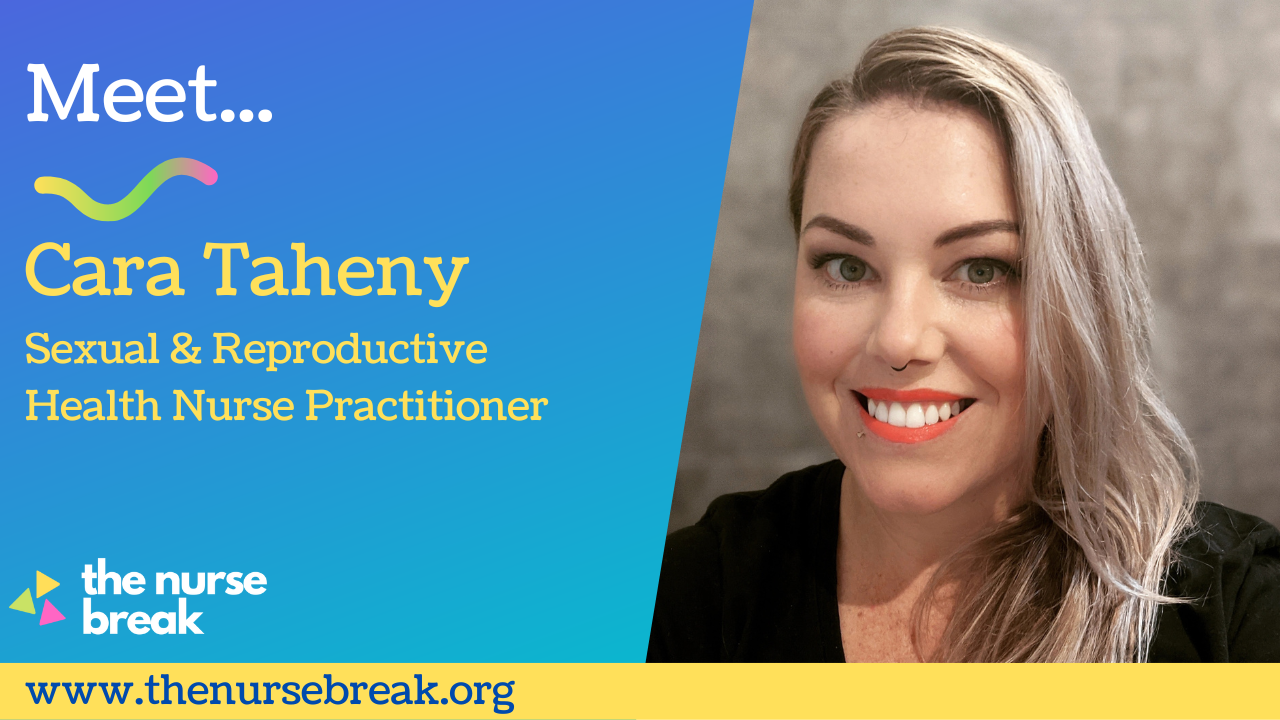




You must be logged in to post a comment.